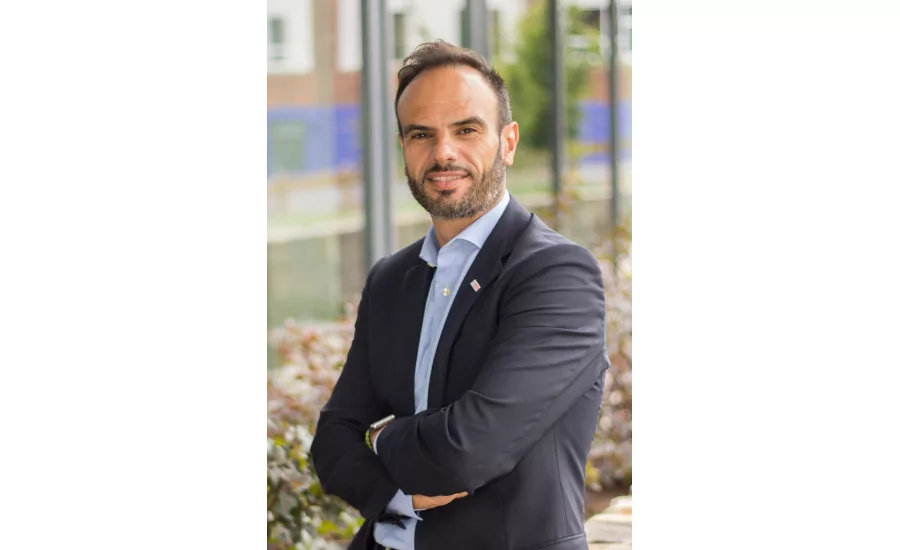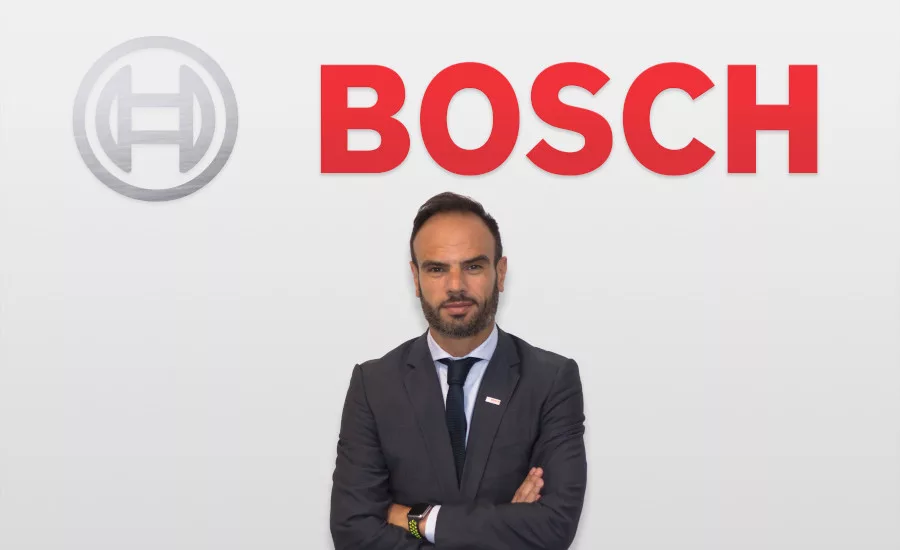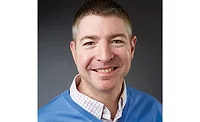PM Profile: Bosch Thermotechnology's Vitor Gregório
Bosch invests in North American market.

Vitor Gregório is regional president of Bosch Thermotechnology North America. Photo credit: Bosch Thermotechnology Corp.

“We want to put Watertown on the map, both in the industry and with local authorities in Massachusetts,” says Vitor Gregório is regional president of Bosch Thermotechnology North America.
On June 11, Bosch Thermotechnology invited trade media and local dignitaries to tour its new Watertown, Massachusetts, facility, where Vitor Gregόrio, regional president of Bosch Thermotechnology North America, provided insight into the company’s growing North American operations. PM had a chance to catch up with Gregόrio — this is what he had to say.
PM: How long have you been with Bosch, and how did you enter this industry?
VG: I’ve been with Bosch for about 19 years. I’ve worked in three different Bosch divisions: HVAC, Automotive Aftermarket, Power Tools and back to HVAC.
I entered the HVAC industry in the beginning of my career when I joined Bosch in Portugal. At the start, I was responsible for the thermotechnology business for heating and hot water in South America, specifically Argentina. Then I moved to the automotive business for approximately seven years. Then consumer business in power tools for four years as a Sales Vice President for Latin America, headquartered in Brazil. That was right before I took on this responsibility in the U.S. for the North American market in April 2015. I rejoined the HVAC industry roughly 11 years after I left for automotive in 2004.
PM: Bosch opened a new facility in Watertown, Massachusetts — can you tell me a little about that?
VG: We want to put Watertown on the map, both in the industry and with local authorities in Massachusetts. Watertown is an important investment for our company. It’s not just about new offices or a new headquarters, it’s a research and development investment in terms of people and infrastructure. We’ve been here since July 2017, but the facility has been evolving. We’re very excited to showcase our experience center and lab space. We’re ready to formally announce our facility to the industry and market, as well as the local community, customers and authorities.
PM: Can you tell me about the Experience Center in Watertown?
VG: The purpose of the experience center is to give our visitors the look and feel of our products and technology. We used to have an experience center in Atlanta at Serenbe. It was a great idea in years past to put it there because it’s a green community and it fit well with our geothermal story line. However, our portfolio has evolved in several different areas, such as mainstream air conditioning and new applications for water heating. It was also difficult to keep it going without having any Bosch infrastructure in the area.
So, we decided to close it and open and integrate an experience center within our comprehensive setup in Watertown. We want to bring the products and experience to our own working and developing environment. It also gives us the opportunity to bring customers in so they can see where and how we work. Our offices are pretty different from the industry standard. We have a modern setup — everything is an open space, and we have integrated teams between sales, marketing and the engineering group.
We also have the lab space, which includes three labs. We wanted to have this handful solution in one place. We have the experience center, where you can see, touch, and experience the products from a technical stand point, but also from application and that’s important to us. It’s not only the product, it’s the application.
We have residential, commercial and system applications. The experience center gives us the opportunity to demonstrate all of these options in a nutshell, again, integrating this space within our office and lab space.
PM: What kind of contractor/distributor training will you have there, and why is Bosch investing in training?
VG: Our Watertown space is for meet-and-greet sessions. Our trainings take place in Londonderry, New Hampshire (hydronics — boilers and water heaters), and Ft. Lauderdale, Florida (air conditioning — geothermal and air-to-air applications). We wanted to have a showroom, but more than just display the products, we have the demonstration and audio/visual support to show what the products are capable of and what type of applications they meet.
Training is a no-brainer. For Bosch, training is not an option — it’s mandatory. If you don’t have trained contractors, you struggle to have your products installed properly to promote your technology within the industry. It’s challenging to train our contractors because it may require them to miss working hours and lose out on a day of work. That being said, Bosch is investing in new techniques and new ways of training.
Training in this industry is still very traditional. You go to a manufacturer facility where you receive a training manual, learn through a trainer, touch the product, assemble and disassemble the unit, etc. Bosch is investing in more modular training systems. We have small vehicles that trainers can drive to the wholesaler’s and contractor’s branches. Through the small trailers, we can demonstrate and train people with products that are actually working. This modular option provides much more flexibility.
We invite contractors from local areas outside of our training facilities. We’re doing roadshows and training in several cities, such as Denver, Salt Lake City, Minneapolis, Chicago and Cincinnati. It’s hard to bring people from those locations to New Hampshire or Florida, so we go to them.
Another investment we are making is in webinars. They’re becoming a much better training tool, even for technical training. We started producing content for webinars and have already conducted a dozen.
PM: Now that the geothermal tax credits have been retroactively reinstated, where do you see that market going, and is Bosch going to be investing even more in geo?
VG: We’re pleased the tax credit is reinstated, but regardless, Bosch never divested in geothermal. We advocated and lobbied for the tax credit with other partners in the industry. We believe this technology should be incentivized and supported and shouldn’t have been removed from the incentive of other renewables in the first place.
This technology has its own argument and a benefit that is so tangible we have market for this technology regardless of the tax credit. We will continue to advocate and promote for geothermal technology. We hope reinstated tax credit boosts the market further. Bosch will also take advantage and grow our share with the market development.
We have our factory in Ft. Lauderdale, where we continue to invest, improve and innovate our geothermal products. We launched a new residential unit in 2017 and are launching an upgraded and connected version of geothermal WSHP in the second half of 2018.
PM: Bosch works with FIRST robotics — can you tell me about that? Is that also a personal interest of yours?
VG: FIRST Robotics is a Robert Bosch North American initiative that we in Thermotechnology North America (TTNA) are directly involved and interested in because we believe in STEM education support. Here in TTNA, we sponsor and mentor a specific FIRST Robotics team, Team 238. Bosch Thermotechnology senior executive George Berg is a mentor and coach of this team from a financial, leadership and team working standpoint.
We’ve also hosted a Bosch Day where the teams brought their innovation and inventions to our Londonderry facility. The bond you create with the younger generation at that age is tremendous and rewarding. It definitely ensures Bosch will be on their outlook when they become part of the job market, but above and beyond that, it’s an intrinsic interest from our side to develop youth, creativity and innovation, while also fostering collaboration and team spirit. It’s an interesting initiative we’re proud to not only sponsor, but directly work with and mentor the teams as they invent.
PM: What other STEM initiatives does Bosch support?
VG: This year, we worked with another institution in Boston, again to ensure the Boston community knows and understands Bosch is present in their community. We worked with a local school who also has a very interesting STEM program. We developed a campaign around sustainability with younger kids in the sixth grade. They had the topic of sustainability, so how can houses and schools be more efficient in terms of energy consumption? We introduced them to the Bosch Connected Control (BCC100) Thermostat and worked with the students on how we can educate our habits and their parents habits around energy saving and wise energy utilization. Introducing them to the BCC100 gave them the opportunity to interact with the product, which is a smart device and can control better usage of the HVAC equipment and understand how to better use their resources.
PM: How does (or will) the lack of new talent coming into this industry affect Bosch, and how is Bosch contributing to workforce development in the trades?
VG: I don’t think there is necessarily a lack of talent coming into the industry; instead, I’d say there is a rougher fight for talent. This trade is not the most attractive for younger generations, but it also depends on how you bring innovation to the HVAC industry, in terms of inspiring working conditions and innovative products and solutions.
Regardless of society, you will need heating and cooling to survive. That means this industry is here to stay. How this industry will stay and how manufacturers and contractors and others agents will coexist is definitely a question mark. We see more digitalization and IoT coming up, and those are the arguments that can harness the younger generation to this industry.
There is definitely an opportunity for us, as industry leaders, to do a better job promoting the attractiveness of this industry. It’s our labor to promote the industry in a different way. Yes it’s still very traditional, but I believe the products we’re launching, the working conditions we’re offering, and the new technology and business model coming to will play a major role, and we’ll definitely be at the forefront.
When you look to our average age in sales, marketing and product management, we’re averaging 28-32 in age, which is great. We’re bringing younger talent to the company. Bosch, as a company, offers a trainee/junior management program. TTNA is one of the most requested divisions for rotation of the junior management participants.
PM: How would you describe Bosch’s company culture?
VG: Bosch is a very unique company. We are the largest privately held company in the world. It’s very unique, especially by U.S. and North American standards, to have an $18 billion company not publically traded. That shapes and influences the company’s culture. Bosch is definitely not short-term oriented. Our decision making process is different and more long-term oriented and stable. This doesn’t mean we’re not target- or result-oriented — we definitely are — but we are not driven by quarterly results. That shapes the leadership the decision making culture of Bosch.
With a 135-year-old history, Bosch is a long-legacy company that is present across the globe. We live in an era where a startup can become a multi-billion-dollar company in two to three years, but we’re unsure they’ll last 135 years. I’m not saying that’s right or wrong. I’m just saying that’s a milestone of this company’s culture — to be long-term oriented and shaped by innovation and diversity.
While we’re a German company with major assets in Germany, I believe we are one of the most diverse companies in the industry and probably in the world. Diverse in terms of people, but also in terms of businesses. Our divisions range from automotive and HVAC to power tools and security systems to household appliances. You see innovation across the board in such a large and diverse company.
It’s difficult to summarize a culture, but long-term orientation, diversity and innovation are words that stand out. Of course, our anchor is “Invented for life.” It’s impressive to have $7 billion per year invested in research and development. It’s also not by chance that we are top three in the world in terms of number of patents issued per year.
PM: How about your leadership style?
VG: You should probably ask that question to my team. What I can tell you is that I’m passionate about leadership. It’s probably my favorite topic in business. As I mentioned, I’m not an air conditioning/HVAC guy, I’m probably not as thrilled by the technology development as some other industry leaders because they’ve belonged to the industry for such a long time. I’m thrilled and motivated by leadership. I’ve developed my career around leading others and I learn every day through that opportunity. I’ve been very fortunate to become a leader very young, and that’s definitely helped me a better person, professional and human being. At TTNA, we do a lot of investment around leadership. We have a program for executives that puts things into perspective and forces us to reflect on our leadership style on a regular base.
PM: What is one thing you personally hope to accomplish in your position in the next 365 days?
VG: We are amidst a huge transformation at Bosch TTNA. We changed our product portfolio, location strategy and operational setup. We’re also opening new warehouses and new customer bases, and all that came along with a major people transformation. I’d like to conclude that transformation in the next 365 days by having the team more stable, new team in place and positions we need filled. If we do that, we’ll ensure our targets — and our growth and bottom line target.
PM: Where do you see Bosch heading in the next few years as a company?
VG: Bosch has a really bright future. On a global scale, we are trying to reinvent ourselves in a very structured and smooth way. We aren’t just blowing up our legacy and throwing away 130-plus years of successful existence. However, we know the world has changed and is changing rapidly and we need to change quicker to react and be ahead of the transformation in the business environment and our industries.
We’re investing heavily in research and development, and startups. We have strong ties into trending topics like artificial intelligence, the Internet of Things, cybersecurity and autonomous driving. The general public is probably not aware of Bosch’s endeavors because we’re more of a low-profile company, but it’s impressive the number of areas the company is investing in and the technology backbone of the company. As a company, we’re ahead of the curve in several or most of the industries we play in.
PM: What’s one thing you want our readers to know about Bosch?
VG: That Bosch is a good place to work. It’s an interesting company and different from other comparable sized companies. It’s also different from what people may have in mind when they think of a German company. We are a global company with German roots.
Bosch has been in the U.S since the early 20th century, so the company has been in the U.S. more than 110 years. Bosch knows the U.S. very well and has been here long enough to understand the North American people and culture.
PM: What’s one thing you want our readers to know about you?
VG: I really enjoy the opportunity to interact and learn from different people in various places, cultures and industries. The U.S. is my fifth country working for Bosch, and I’m really enjoying my experience here. I’m very fortunate to have the opportunity to work and live in such different environments. It makes me a more tolerant and compassionate person, definitely more open to each counties realties. I’m also fortunate to share this educational experience with my family. Having my family immersed in cultural changes creates much less biased behavior with my kids.
PM: Is there anything else you’d like to add?
VG: Bosch is improving and growing, and we project to double our business by 2020. It’s a part of our strategic map and goals. We’re heading there in full force. We had a good year in 2017 and are having another in 2018. I think that is promising our business is developing well and coming in above our expectations.
Looking for a reprint of this article?
From high-res PDFs to custom plaques, order your copy today!






